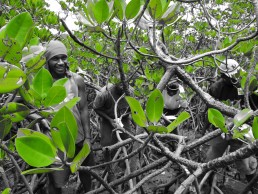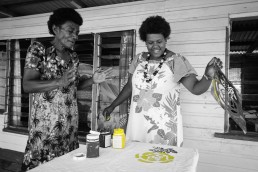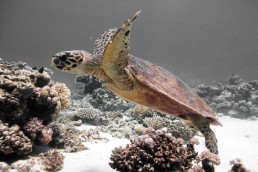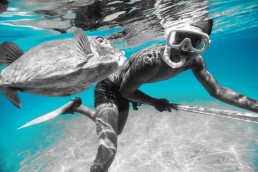Blue Carbon
Seagrass and Mangrove Research and Conservation
The importance of mangroves and seagrass ecosystems.
In the past, conservation efforts placed heavy emphasis on coral reef ecosystems. It is only recently that the fundamental significance of mangrove forests, tidal wetlands, and seagrass beds has been recognized as blue carbon sinks. Science has discovered that these underappreciated ecosystems can store more carbon for a longer period (up to thousands of years), and at a far quicker rate than terrestrial forests.
C3 has long been involved in seagrass and mangrove research and conservation. We regularly contribute to national and global knowledge about these critical systems. A large part of the organisation’s work involves mapping these ecosystems, documenting threats, and establishing community monitoring programmes as well as campaigning for their inclusion in new and existing MPAs.
We work with the following agencies and organizations:
In the areas we work, these ecosystems are critical.
Mangrove and seagrasses sustain coastal livelihoods, and provide nursery grounds, feeding areas, and shelter for hundreds of fish and invertebrate species.
Furthermore, these blue carbon ecosystems provide physical protection for vulnerable coastal communities from increasingly frequent and severe typhoons that result from the escalating impact of climate change.
Throughout Macuata, C3 is assisting communities in establishing native forest nurseries and replanting denuded forests. It also assists in replanting mangroves and establishing MPAs focused on mangrove and seagrass ecosystems. With our hundreds of community volunteers and 800 Reef Rangers, we have a huge capacity for replanting large swathes of coastal and upland forests at low cost.
C3 is currently working with the European Union to extend mangrove forests in Macuata and Cacuadrove. From 3,200 mangrove trees planted in 2019, we aim to raise the number to 5,000 by 2022, and eventually to 6,200 by 2023. This will result in an increase of hectares of mangrove forest under community protection: from 10.5 ha in 2018 to 30 ha in 2023. These targets will be reached through the integration of key mangrove habitats in LMMAs, and community involvement in training, replanting, and weekly monitoring of propagule success at target sites.

Related Case Studies
Contact
C3 Fiji108 Nasekula Road, Labasa
C3 Fiji (Community Centred Conservation (Fiji) Limited), in accordance with the Companies Act, is registered as a non-profit organization in Fiji under the Registrar of Companies with Company Registration No. RCBS2014G3314.



